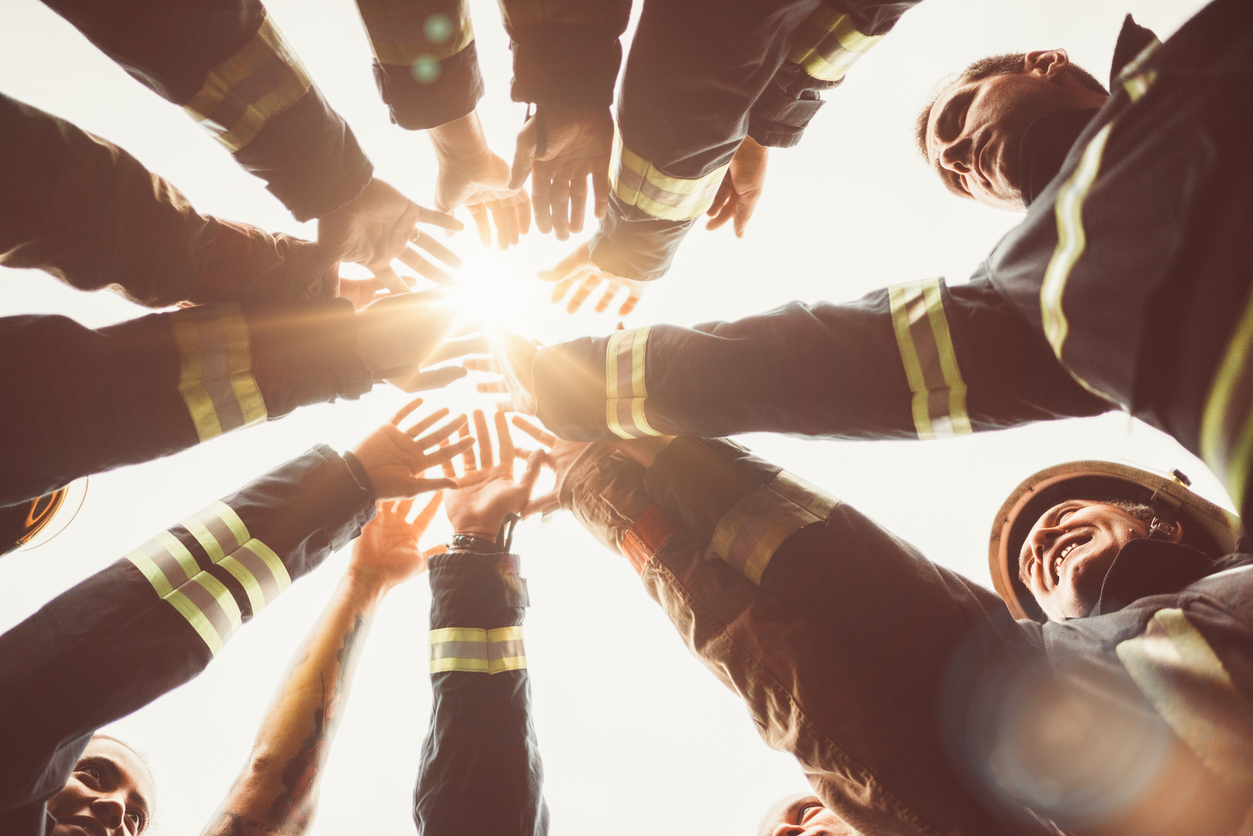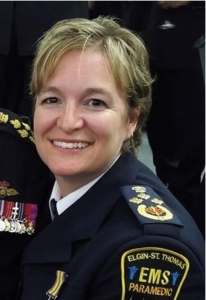From medic to mental health advocate

Subscribe to Catalyst
Subscribe to get our magazine delivered right to your inbox
Related Articles
Subscribe to Catalyst
Subscribe to get our magazine delivered right to your inbox
Related Articles
MHCC launches virtual course — delivered by first responders, for first responders

Pauline Meunier
For Pauline Meunier, a paramedic of 26 years, it took a trip to the allergist to give her anxiety a name.
“What I thought were allergic reactions turned out to be panic attacks,” she said. “Before I was asked about anxiety, it never occurred to me that my mental health could be the problem.”
That difficulty in recognizing one’s own mental injury or illness, she explained, is common among first responders, as is the undertone of stigma or self-stigma that may prevent someone from seeking help.
Now, as a training and delivery specialist with the Mental Health Commission of Canada’s (MHCC’s) Working Mind team, and a facilitator for the new The Working Mind – First Responders (TWMFR) Virtual course, Meunier is helping to break the cycle.
“First responders know that taking care of their physical health is critical to performing at their best,” she said. “Through this training, we want them to understand that caring for their mental health is equally important.”
The freshly revamped course is now being delivered virtually (until it becomes safe again to do so in person). Using an evidence-based approach, it gives first responders the knowledge they need to self-assess and also to talk about mental health — including strategies to help them cope with challenges and resources to seek out when they need support. To maximize the material’s resonance, its scenarios and terminology are tailored to each relevant group (e.g., paramedics, firefighters, police), and the course’s facilitators all come from first responder backgrounds.
A mental health pulse check
For those who work in the helping professions, especially in the extreme situations faced by first responders, it can be easier to recognize distress in someone else than in oneself. But the course’s mental health continuum model offers a way to help them do so. It matches a range of thoughts, attitudes, and behaviours to a colour-coded mental health spectrum: green (healthy), yellow (reacting), orange (injured), and red (ill).
For Meunier, that continuum — in the form of a wallet card — led to her own personal breakthrough.
“While attending a presentation, I was staring at the miniature mental health continuum on my table when it struck me — I was deep into the orange and I needed help,” she said. “As paramedics, we aren’t good at putting ourselves first. But as I learned first-hand, the continuum can be an effective tool for all first responders to check in with themselves and recognize when they need extra support.”
Leveraging language
One new component in the updated course is an emphasis on language. Based in part on the MHCC’s Language Matters guide, participants learn the value of using person-first language (where appropriate) as a powerful way to reduce stigma around mental illness and substance use.
Based on research showing that labels like “crazy” or “addict” can perpetuate stigma and discourage help seeking, participants are encouraged to use language that paints a more accurate picture by putting the human first and the condition second; for example, “this person is living with a mental illness or an addiction.”
“In the field, it’s easy to rely on labels as a sort of shorthand for easier communication,” Meunier explained. “But if we make an effort to use respectful language, we can help overcome stigma rather than contribute to it.”
The way forward
While there is still a long way to go in reducing stigma and establishing parity between mental and physical health among first responders, Meunier is hopeful for the future.
“If there’s one group who cares about excelling at their jobs, it’s first responders,” she said, adding that with the help of courses like TWMFR Virtual, the idea that mental wellness is part of that success is gaining traction.
“The most rewarding thing about facilitating these courses is receiving messages from participants who say things like, “it all makes sense now” or “this explains so much.” Those moments of realization can be life changing — I know it was for me.”
To learn more about the benefits of TWMFR Virtual for your organization, contact solutions@openingminds.org
Amber St. Louis




